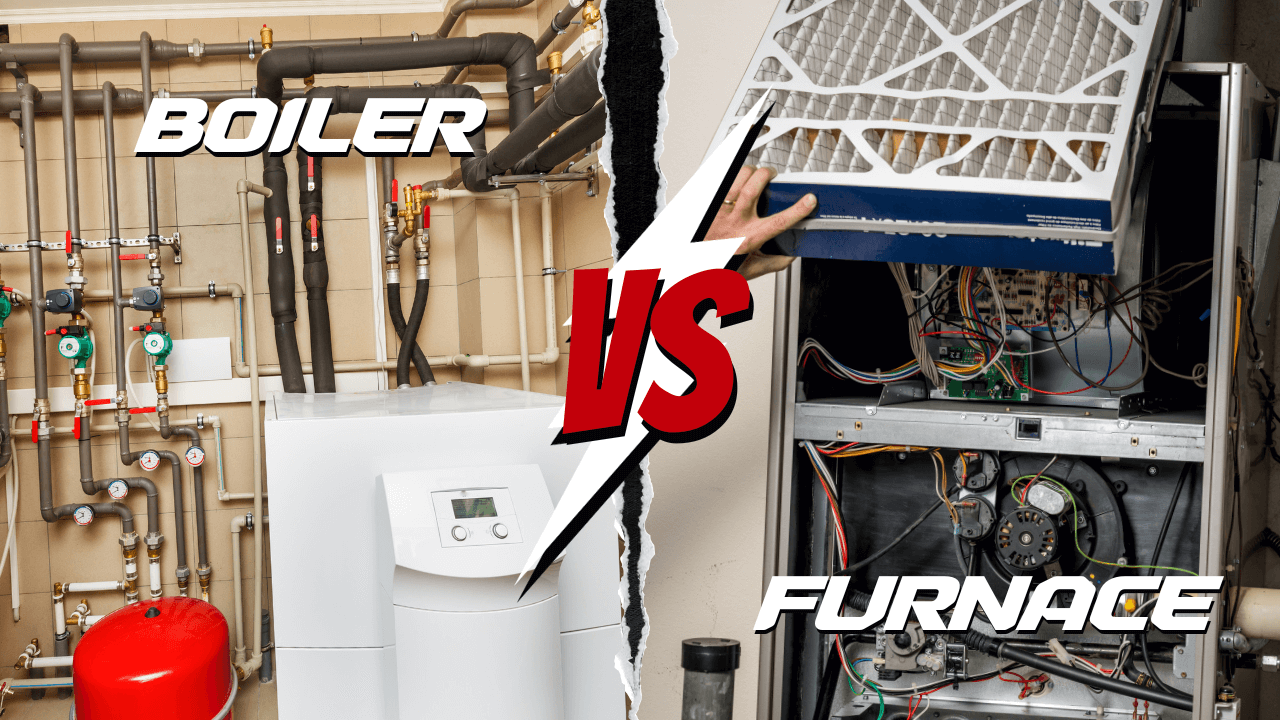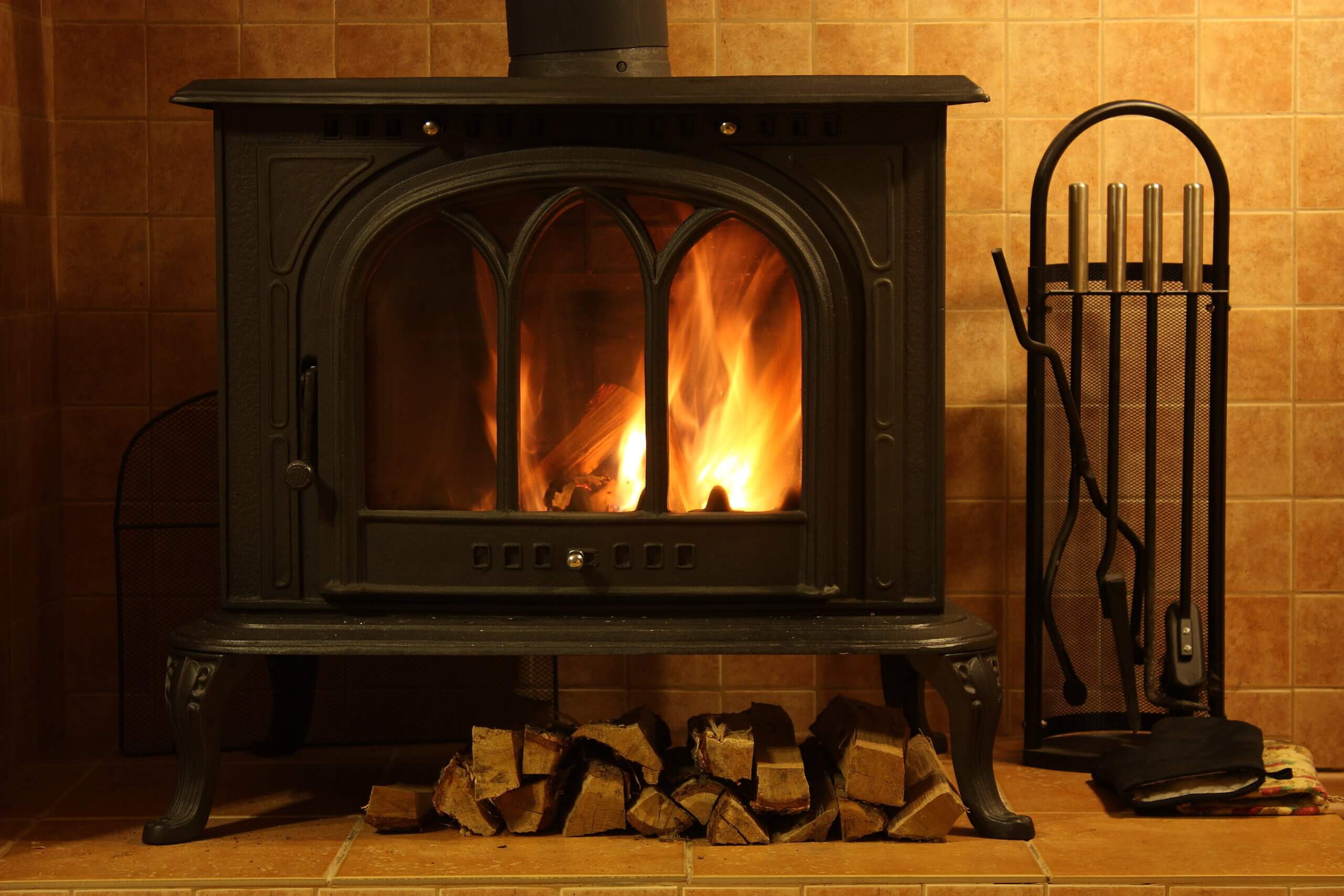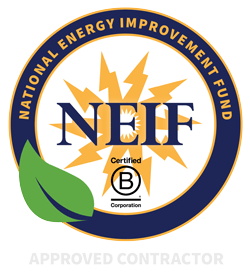What’s the Difference Between a Boiler and a Furnace?
- Heating
- Uncategorized

In the world of home heating, boilers and furnaces play vital roles in keeping our homes warm and cozy during the colder months. But have you ever wondered what’s the difference between a boiler and a furnace? In this article, we’ll dive into the differences between a boiler and a furnace, explore how they work, and discuss their benefits and drawbacks. Whether you’re planning to upgrade your heating system or simply curious about the options available, this guide will help you make an informed decision. Our expert technicians at North Shore Home Energy can help you make the right choice when it comes to picking a heating system. Contact us today to learn more about your heating options and our heating services!
What’s the Difference Between a Boiler and a Furnace?
When it comes to heating your home, understanding the fundamental differences between a boiler and a furnace is the first step in making an informed choice. These two heating systems, while both essential for keeping your living spaces warm, operate in distinct ways. Let’s begin by exploring what exactly a boiler is and how it operates to provide warmth and comfort.
What is a Boiler?
A boiler is a heating system that utilizes water to distribute heat throughout your home. Boilers heat water through various heat sources, such as gas, oil, or electricity. It heats water and then circulates it through pipes and radiators or underfloor heating systems. As the hot water flows through these elements, it releases heat into the rooms, making them comfortably warm.
What is a Furnace?
On the other hand, a furnace is a heating system that heats the air directly. Furnaces operate by burning fuel (usually gas or oil) or using electric resistance to generate heat and then use a fan to distribute the heated air throughout your home via ductwork. The warm air is delivered through vents or registers, ensuring consistent warmth in every room.
Boiler Benefits and Drawbacks
Boilers are the unsung heroes of home heating systems, quietly and efficiently keeping our living spaces warm and cozy during the coldest months of the year. These systems may not always be in the spotlight, but they play a vital role in maintaining our comfort. Let’s discuss some of their benefits and drawbacks.
Boiler Benefits
- Even and comfortable heating
- Ideal for homes with radiant floor heating
- High energy efficiency
- Quiet operation
Boiler Drawbacks
- Slower heating response time
- Requires a separate hot water tank in some cases
- Initial installation costs can be higher
Furnace Benefits and Drawbacks
Furnaces, the workhorses of home heating, are the backbone of many households’ comfort during chilly seasons. While they may not always steal the limelight, these systems are responsible for keeping our homes warm and welcoming. Here are some of the benefits and drawbacks of furnaces.
Furnace Benefits
- Quick heating response time
- Suitable for homes with existing ductwork
- Lower initial installation cost
- Air filtration options for improved indoor air quality
Furnace Drawbacks
- May lead to uneven heating
- Ducts require regular maintenance
- Lower energy efficiency compared to some boilers
Which is the Right System for You?
When choosing between a boiler and a furnace, several factors come into play:
- Existing Infrastructure: A furnace may be a more cost-effective option if you already have ductwork in your home. On the other hand, if you’re starting from scratch or have radiant heating, a boiler might be the better choice.
- Fuel Availability: Consider the availability and cost of the fuel sources in your area, whether it’s natural gas, oil, or electricity.
- Budget: Your budget and long-term heating expenses should influence your decision. Boilers generally have higher upfront costs but can offer energy savings over time.
- Personal Comfort: Think about your heating preferences. Do you prioritize even, radiant heat or quick warm-up times?
Consult an Expert – North Shore Home Energy
Choosing the right heating system for your home is a significant decision. Sometimes, it’s best to get a professional opinion. To make an informed choice tailored to your specific needs, we recommend consulting experts like North Shore Home Energy. Our experienced professionals can assess your home, discuss your preferences, and guide you toward the best heating solution. Big decisions like these are best to be talked about with experts to avoid making the wrong choice that could lead to dissatisfaction and expensive prices.
Boiler vs Furnace: Which Will You Choose?
Understanding what’s the difference between a boiler and a furnace is crucial when it comes to heating your home effectively and efficiently. Both systems have their advantages and disadvantages, so it’s essential to weigh your options carefully. Whether you opt for a boiler’s consistent warmth or a furnace’s rapid heating, the right choice ultimately depends on your unique circumstances and preferences. Consult with experts at North Shore Home Energy to ensure your home stays warm and comfortable throughout the seasons. Contact us today to consult your heating options and learn about our heating services!
Check out our Google Reviews!







